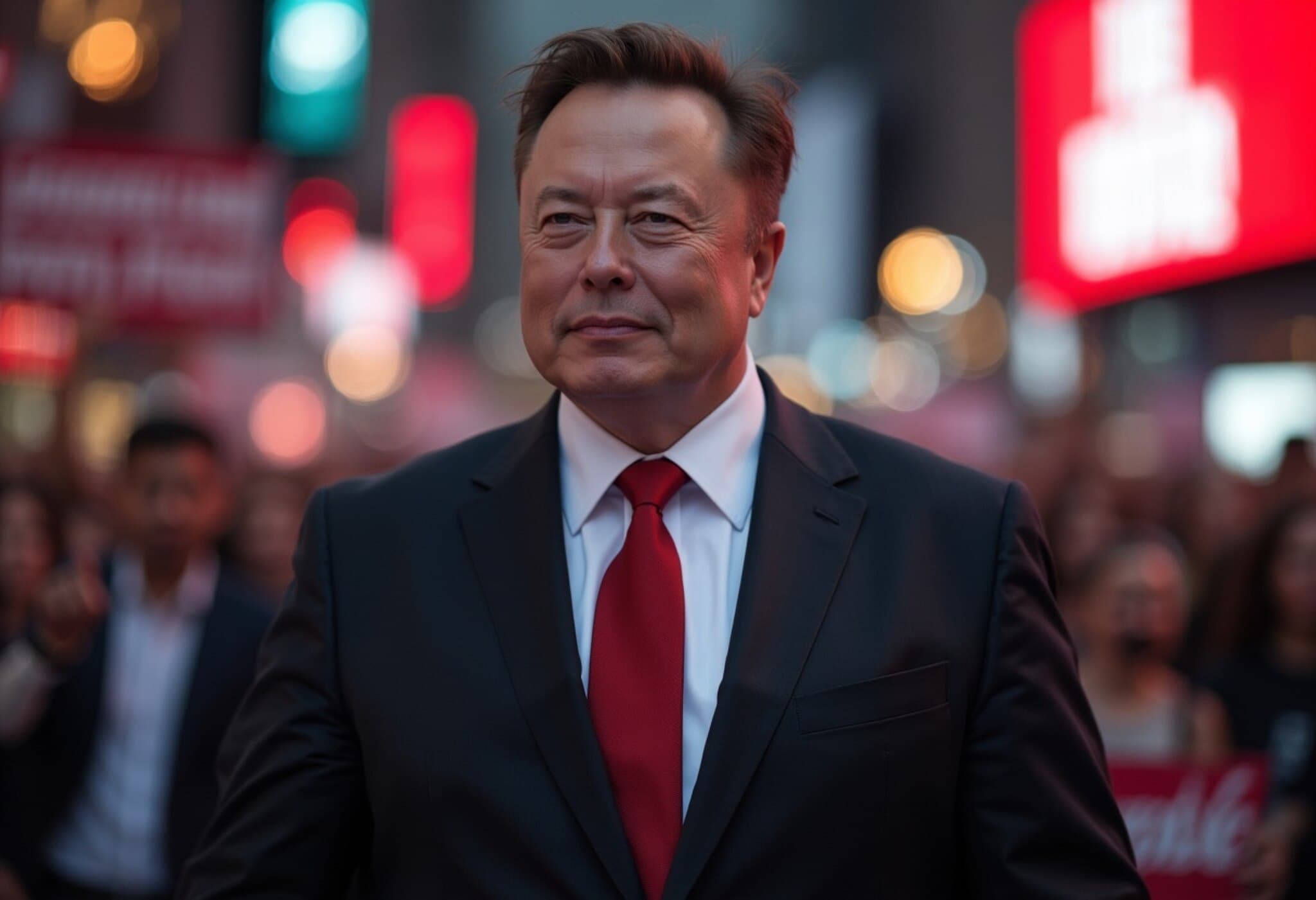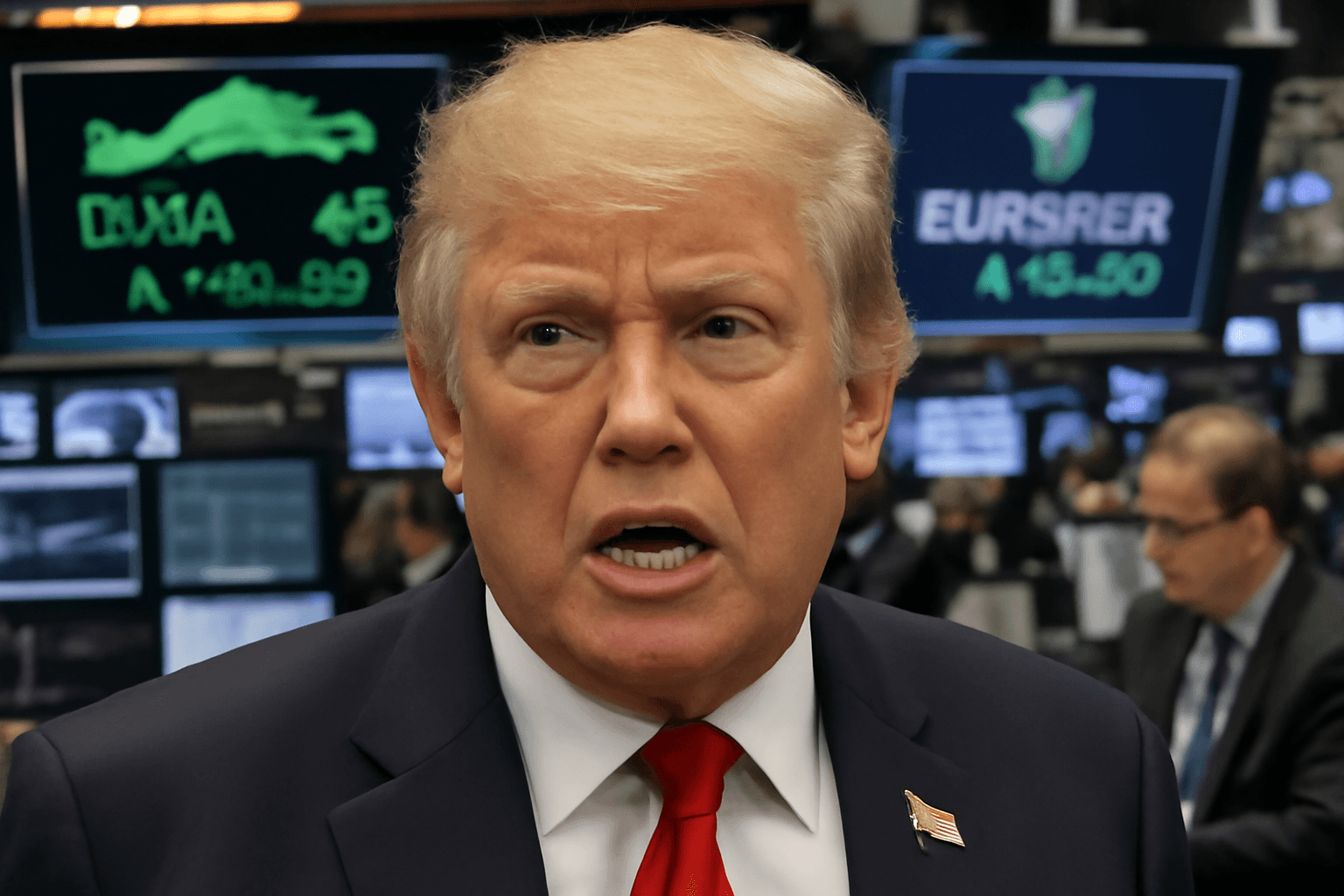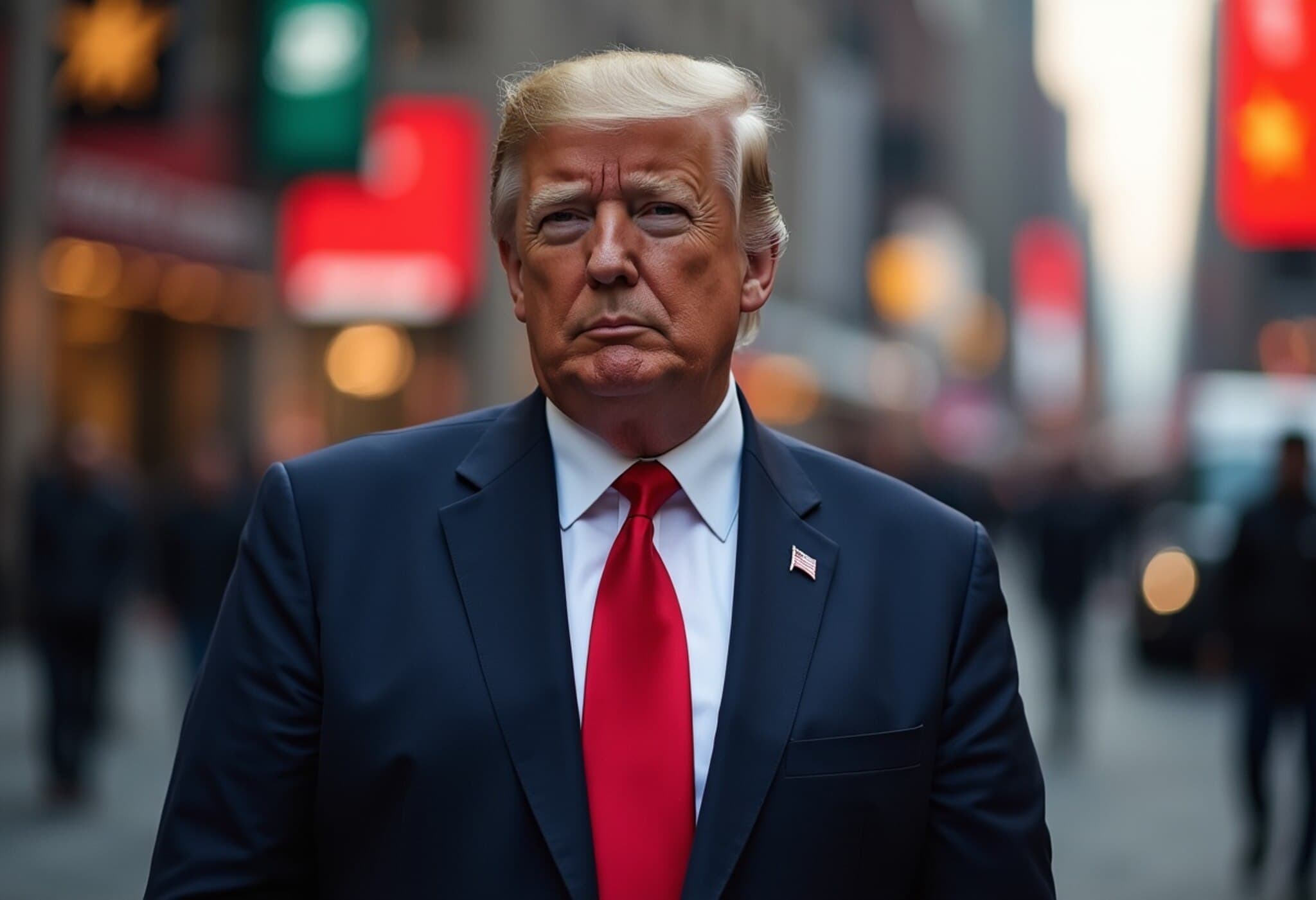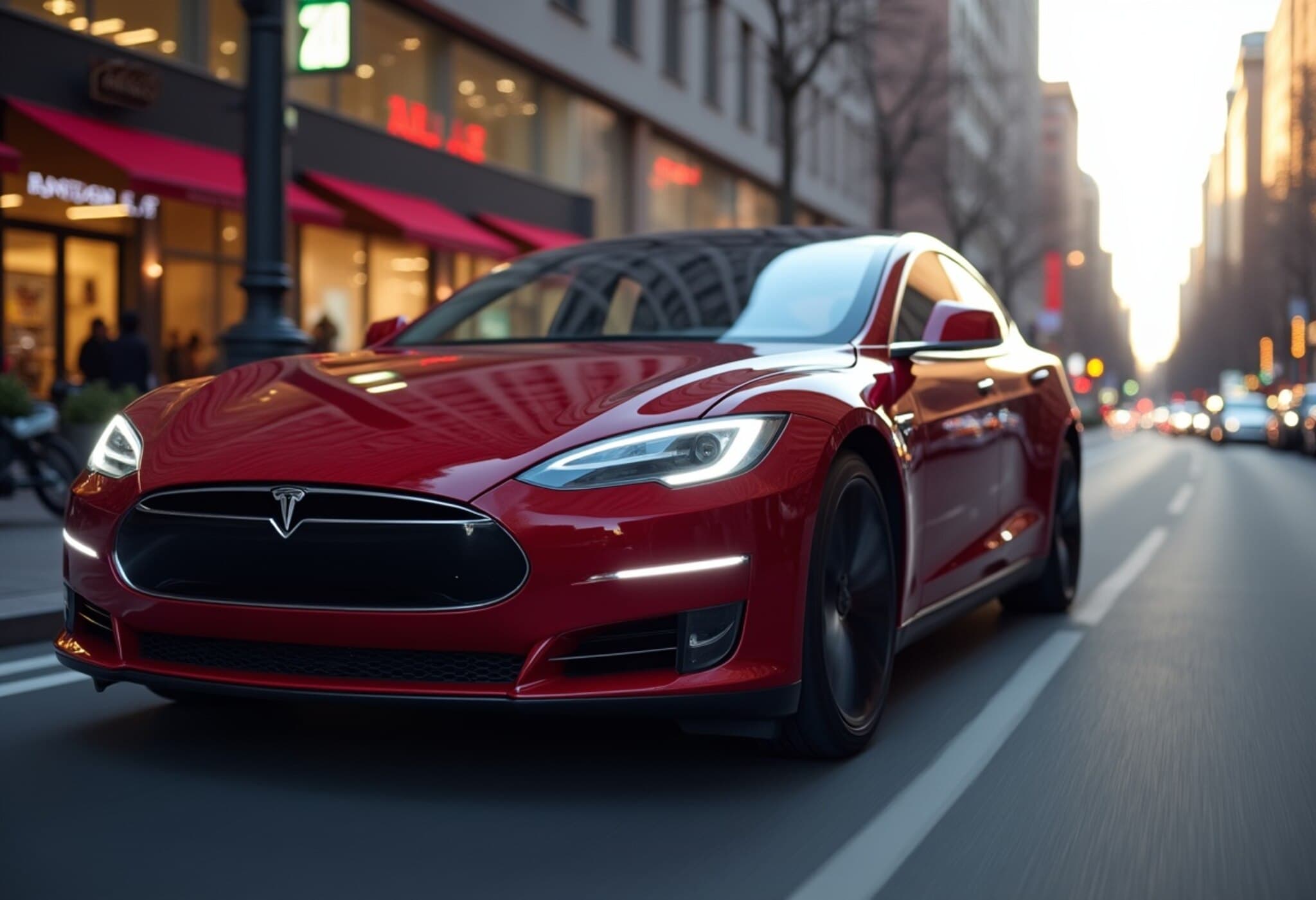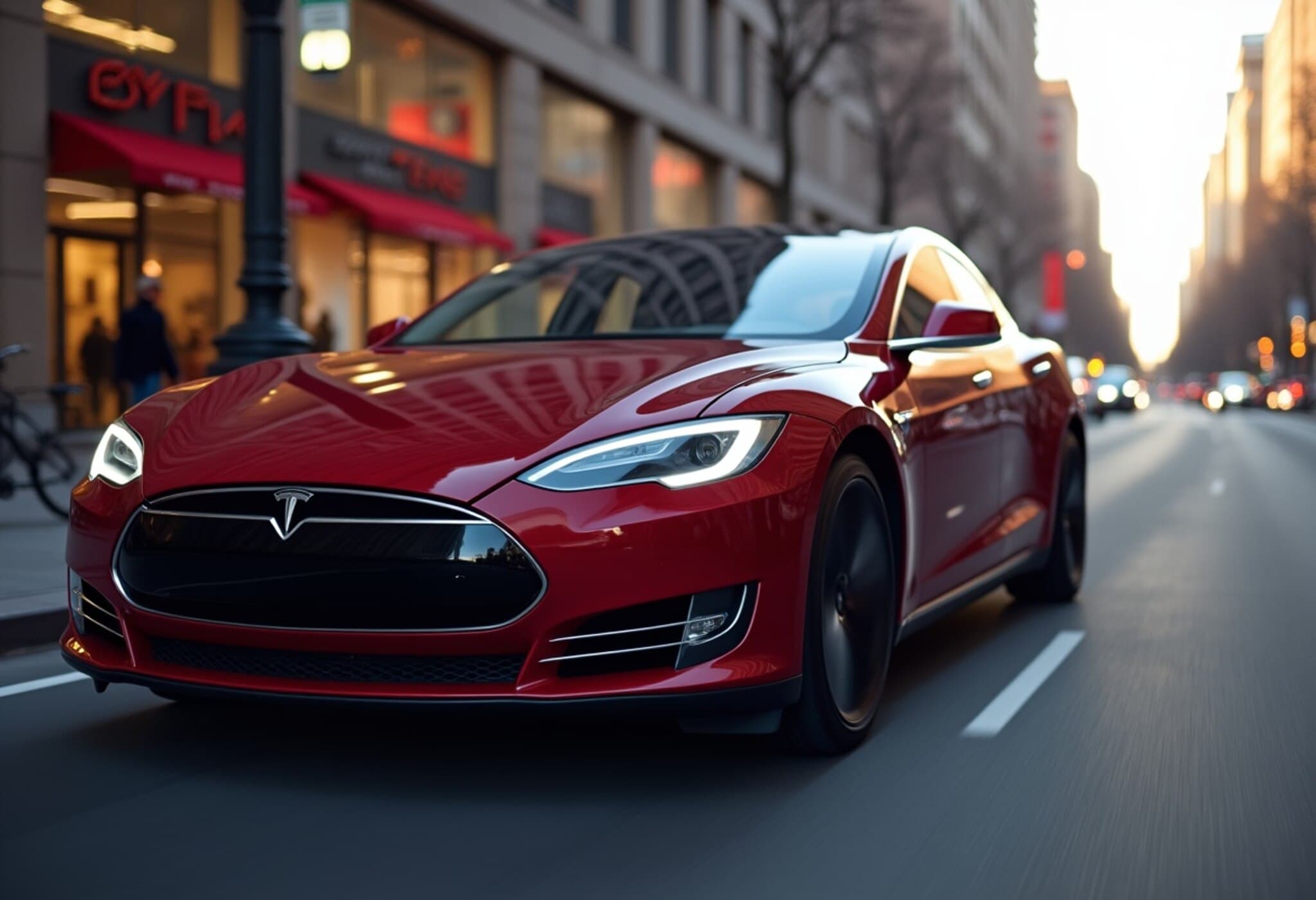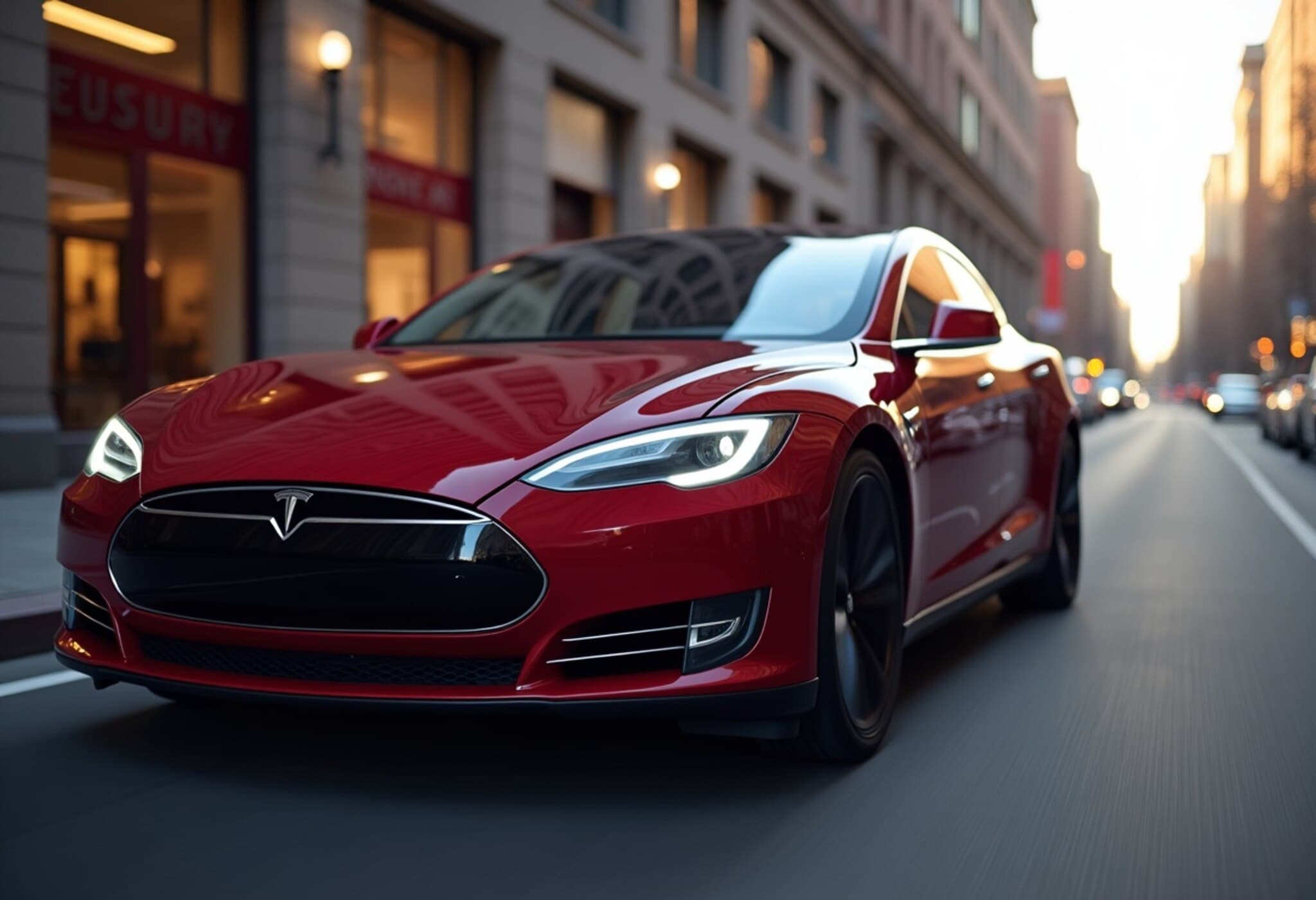Tesla Grapples with Triple Challenges in a Shifting Market Landscape
Tesla, once the pioneering leader in electric vehicles (EVs), is navigating a turbulent phase marked by declining auto sales, regulatory headwinds, and strategic financial decisions that continue to draw investor scrutiny. In its latest quarterly report, the electric carmaker revealed a second consecutive quarter of sales decline, notably with a 2.8% market share in Europe as of June 2025 — down from 3.4% a year prior. This marks the sixth straight month of shrinking presence in a key global market.
Regulatory Changes and Political Dynamics Threaten Tesla's Revenue Streams
Compounding Tesla's sales slump are unfolding regulatory developments tied to the U.S. government's evolving stance on clean vehicle policies. The Trump administration's recent moves appear poised to undermine incentives that have historically benefited Tesla. Notably, a critical federal electric vehicle tax credit is slated to expire at the end of September 2025, effectively raising prices for Tesla buyers and potentially dampening demand.
Further complicating matters, traditional automakers will soon no longer be mandated to buy zero-emission credits from Tesla. These credits have been a lucrative source of income because Tesla’s fully electric fleet generates an excess of these credits, which other manufacturers purchase to meet regulatory requirements. With the Trump administration rolling back certain environmental penalties, Tesla stands to lose this ancillary revenue stream — a shift that market analysts warn could exacerbate the company's financial pressures.
Bitcoin Sales: A Missed Financial Opportunity?
Adding to Tesla’s woes is its history with cryptocurrency investments. Currently, Tesla holds approximately $1.24 billion in bitcoin. However, when the company sold a significant portion of its bitcoin holdings in 2022, the crypto asset was trading around $19,000 per coin — a stark contrast to today’s elevated price levels near $118,000. This sale represents billions in potential unrealized gains, a financial decision that some critics argue may highlight broader challenges in Tesla's strategic planning during volatile market conditions.
Political Rhetoric in Contrast with Market Realities
Despite the administration's actions, President Donald Trump emphasized that his policies are not designed to single out Tesla but rather to encourage broad business prosperity. In a recent statement, Trump asserted, "I want Elon, and all businesses within our Country, to THRIVE like never before!" Whether this rhetoric translates into tangible support amid tightening regulations remains uncertain and merits close observation by stakeholders and policymakers alike.
Market Movements and Broader Economic Context
Stock Market Highs Amid Corporate Challenges
The broader market landscape contrasts Tesla’s difficulties. On the same day Tesla's shares fell 8%, the S&P 500 and Nasdaq Composite hit record highs, fueled by investor optimism and strong corporate earnings reports. However, these gains were tempered as the European Central Bank adopted a cautious monetary stance, reflecting the complex interplay of global economic factors.
Intel Reports Mixed Quarterly Results
In another notable corporate update, Intel announced second-quarter revenues surpassing Wall Street estimates, signaling resilience in the semiconductor sector. Yet, the company posted a net loss of $2.9 billion, largely due to a substantial $800 million impairment charge. Under new CEO Lip-Bu Tan, Intel is also embarking on significant restructuring efforts aimed at restoring profitability and competitiveness.
Emerging Pharma Opportunities in India
Meanwhile, in the pharmaceutical landscape, an Indian company is capitalizing on expiring patents in Brazil and India to establish itself as a leader in weight-loss drug manufacturing — a testament to emerging market innovation and strategic positioning.
Underreported Narratives and Critical Questions
- How will Tesla adapt its business models to offset lost revenue from zero-emission credits in a regulatory environment that increasingly favors established automakers?
- What role will government policies play in shaping the future of sustainable transportation, and to what extent will political rhetoric impact actual regulatory frameworks?
- Could Tesla's cryptocurrency strategy offer lessons for corporates balancing innovation with risk management in volatile markets?
- What economic ripple effects might these changes have on American manufacturing, labor markets, and the broader EV ecosystem?
Conclusion: Navigating Uncertainty in EV's Next Chapter
Tesla’s current challenges underscore a broader truth about disruptive industries: early dominance does not guarantee enduring success, especially when policy landscapes shift and market dynamics evolve rapidly. Investors, policymakers, and consumers alike will be closely watching how Tesla recalibrates amidst these pressures. Meanwhile, the juxtaposition of robust market indices with specific corporate setbacks highlights the nuanced reality of today’s economic environment.
Editor's Note
While Tesla’s setbacks may raise alarms, they also signal pivotal inflection points for the electric vehicle sector. Policymakers must balance incentivizing innovation against economic pragmatism, and companies like Tesla need nimble strategies to thrive amid evolving regulations and market expectations. As the clean energy transition accelerates, stakeholders should ask: Are current policies sustainable and equitable? And how will industry leaders recalibrate to sustain growth in a competitive marketplace?



